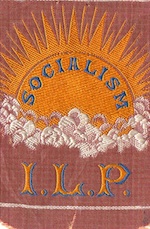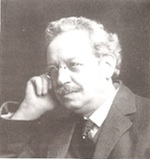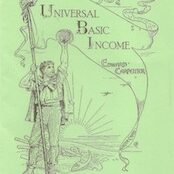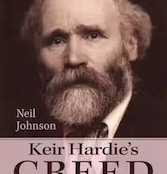IAN BULLOCK examines three of the ILP’s policies from the 1920s and asks what they can tell us about the relationship between socialism and democracy today.
I’ve long been puzzled – intrigued, fascinated – I’m not sure what the right word is, by the relationship between socialism and democracy. On the one hand socialism saw itself as the successor to a long series of struggles for greater democracy. On the other, a considerable proportion of the most oppressive and authoritarian regimes of the 20th century dressed their tyranny in the apparel of socialism.
Top-down and bureaucratic approaches are not unknown, to put it mildly, in the histories of even the most otherwise admirable governments of the left. It would be wrong to pretend that there were no authoritarian tendencies in the British movement in the ‘pre-Lenin’ years – one need only think of some of the statements of George Bernard Shaw. But they were, certainly in both the ILP and the Social Democratic Federation (SDF), balanced and largely held in check by ones repudiating any kind of top-down or dictatorial behaviour or policies that might lead in that direction.
Henry Hyndman of the SDF was, tragically, more far-sighted than he could know in the Social Democrat of 8 August 1897. Arguing that the term ‘social democrat’ was preferable to the vaguer ‘socialist’, he noted that the latter term did not “necessarily carry with it the notion of a democrat”. Socialists, he explained, were “frequently accused of wishing to impose their arbitrary will on the whole population. This is not true, I believe of the great majority of them … But no one can truly say that State or Bureaucratic Socialism is not a danger of the immediate future in more than one country.”
There were certainly such tendencies at the time in the British movement, but they had a hard furrow to plough because of the democratic ethos of all the main organisations of the left, including, of course, the ILP.
I am currently completing a book on the ILP in the interwar period. It will concentrate on the debates and ideas in the party rather than on other aspects and, as in all my work, I will be aiming to retrieve, however imperfectly, the terms of the debates and discussions as they were experienced by participants at the time. I explored the democratic ideas of the pre-1914 ILP in my doctoral thesis, the substance of which was published later as Democratic Ideas and the British Labour Movement, 1880-1914, with added chapters on the attempt to ‘ultra-democratise’ the trade unions in the late 1890s by my friend Logie Barrow.
The ILP of the 1917 to early 1920s period appears frequently in my more recent book, Romancing the Revolution, the Myth of Soviet Democracy and the British Left, which includes a chapter on the failed attempt to get the party to affiliate to the Third International. One of my conclusions is that, in the inter-war period, the ILP had become “a sort of residuary legatee of pre-Bolshevik radical democracy” in Britain. It was this perception, together with Gidon Cohen’s The Failure of a Dream on the post-disaffiliation ILP, that inspired my present research.
I hope what I have learned will be more than just an interesting take on an aspect of the history of a bygone age. The question is, can we learn anything that might be applicable to the Labour Party and the left in general today?
I think we can, not that I would advocate any of the detailed policies of the period, as such. Their relevance lies, I believe, in the underlying principles and ethos that sustained them. There are many aspects of the ILP in earlier times that deserve respect and emulation, such as its much-mocked efforts towards internal democracy, its anti-imperialism and internationalism, its resolute opposition to militarism and, whatever one thinks of its stance in either of the last century’s greatest conflicts, its opposition to war.
Here I want to concentrate on three particular policies from the 1920s which, for me, exemplify the attempt to apply principles and values that are especially relevant in 21st century Britain: parliamentary reform, guild socialim and the living wage.
Parliamentary reform
The ILP supported moves for parliamentary reform throughout the interwar period and beyond, although it actually began campaigning on the issue well before the 1920s.
It was an obsession, according to some, of founder member and sometime ILP chair Fred Jowett. Even before his election as Labour MP for West Bradford in 1906 Jowett was extremely critical of the parliamentary system as it then operated. In particular, in his regular column in the Clarion, he attacked “the theory of Cabinet responsibility” which he described as “one of the most mischievous delusions that constant repetition has ever succeeded in foisting upon the public”. His experience as an MP only strengthened his view.
 In 1909 he set out his argument in a Clarion pamphlet, What is the Use of Parliament? Jowett’s apprenticeship as an elected representative had been served on Bradford City Council and he argued that a committee system similar to that then practised in local government should replace the cabinet system. This would, he maintained, make parliamentary scrutiny of the administration more effective, lessen the possibilities of manipulation by permanent officials, and give MPs a badly needed and adequately serious role.
In 1909 he set out his argument in a Clarion pamphlet, What is the Use of Parliament? Jowett’s apprenticeship as an elected representative had been served on Bradford City Council and he argued that a committee system similar to that then practised in local government should replace the cabinet system. This would, he maintained, make parliamentary scrutiny of the administration more effective, lessen the possibilities of manipulation by permanent officials, and give MPs a badly needed and adequately serious role.
After the demise of the first Labour government in 1924, he returned to the issue. It was deemed important enough for the ILP to publish a pamphlet, The Reform of Parliament, containing the speeches by Jowett and HB Lees Smith, his main opponent on the issue, at the 1925 ILP conference. Jowett’s emphasis had now shifted a little. He no longer seemed to be advocating the complete replacement of the cabinet by committees. Instead, the cabinet would remain as a “General Purposes Committee” co-ordinating the work of the government.
He then wrote another pamphlet, Parliament or Pallaver? Answers to Objections to Proposal for Reform of Parliament, and he carried on arguing the case for the rest of his life. ILP conferences continued to feature resolutions supporting his position. He denied accusations that his proposals would “destroy the Cabinet system and put every department in the hands of a committee consisting of capitalist representatives as well as socialist representatives”. On the contrary, he said, a Labour cabinet would still provide the driving force.
In the century or so since What is the Use of Parliament? we have seen developments that Jowett might well have thought contradictory. On the one hand, the local authority committee system mostly given way to local ‘cabinets’ rather than becoming a model for national government. On the other, parliamentary committees have taken on a greater role, although to the casual observer they sometimes seem to be better at bringing outside bodies to book rather than increasing the accountability of government departments, which was Jowett’s chief concern.
His determined opposition to the Parliamentary Labour Party standing orders, which he believed made it impossible to make honest commitments to the electorate, and subsequent support for disaffiliation from Labour in the early 1930s, was based on the same principle of making democratic representative government a reality.
The point, today is not to revive Jowett’s particular formula but to recognise that his underlying aim to make elected representatives accountable to their constituents, and the executive accountable to the people’s representatives, is more relevant than ever. Given the cynicism, indifference and even hostility with which politics and politicians are viewed, who can deny that such an aim should be an urgent priority for Labour?
Guild socialism
I believe David Howell was right – in his book A Lost Left –to characterise the Clifford Allen years as the “most intellectually vital period” of the ILP. The other two policies I want to examine date from this time.
When the Labour Party’s new constitution was adopted in 1918, introducing constituency parties for the first time, the ILP seemed to some to be on the verge of redundancy. Allen was concerned to find it a distinctive role and one early result of his efforts was the adoption by the ILP in 1922 of a broadly guild socialist programme. From about September 1921 there had been considerable debate within the party about the issue, the NAC’s draft being challenged by a more radical ‘London’ or ‘Allen-Attlee’ version, as it was known, put together by a small group which included the future prime minister.
The NAC’s original version read as follows:
“The ILP believes in democratic organisation both in its political and industrial aspects, for communal ends.
The basis of political democracy must be the whole body of citizens exercising authority through a national representative assembly, directly elected by the people, with a decentralised and extended system of local government.
The basis of industrial democracy must be 1) the organisation of wage and salary earners; and 2) the organisation of consumers.
The exact form of the organisation, and the machinery of co-operation between consumers and producers, must be determined by experience as step by step is taken towards the achievement of the Socialist Commonwealth.”
Supporters of the Allen-Attlee version, including HN Brailsford and Fenner Brockway, wanted a more definite commitment on industrial democracy. They sought to add to the reference to “organisation of wage and salary earners” the words “to whom shall be secured the internal management of industry”. To “the organisation of consumers” they wished to add: “A central body, representative of the people, both as producers and consumers, must decide the amount and character of communal production and service necessary.”
They also wanted to add: “The internal management of each industry must be in the hands of the workers, administrative, technical and manual engaged therein, operating in conjunction with the representatives of organised consumers.”
The programme eventually adopted included features of the various drafts. The collapse of the Building Guild in January 1923, and of the National Guilds League itself not long afterwards, meant that relatively little was subsequently heard of guild socialism either in the ILP or elsewhere. But one does not necessary need to advocate the kind of elaborate reconstructions of the state that were so earnestly debated in those years to see its general relevance for contemporary democratic socialist politics.
Many voices now are raising demands for at least a degree of representation for employees in both the public and private sectors, and the need is evident for effective forms of social management that go at least some way to reconciling the interests of producers, users and consumers and the community at large. Certainly the way Thatcherite privatisation of industries generated so little opposition from the public suggests that relatively few people identified nationalised enterprises as ‘theirs’. The ILP had, rightly, always rejected top-down and ‘bureaucratic’ forms of public ownership.
The living wage
My final example is the living wage policy adopted in 1926. As chair of the ILP, Allen had promoted ‘commissions’ to formulate policies in some detail. In his speech to the 1924 conference he insisted that “a living wage must be enforced as a national policy”. The following year he proposed to “set up a national commission to probe the wages question, and by means of impartial enquiry enable a national verdict to be given as to what constituted a living wage in a civilised community”. The contemporary resonance of this concern after a decade or more of the new living wage campaigns, not to mention the more recent rise of ‘zero-hours’ employment, will be evident.
The group that produced the Living Wage report comprised HN Brailsford, JA Hobson, Arthur Creech Jones and EF Wise – all, as one-time ILP secretary John Paton later insisted, “men with a high sense of responsibility, wide knowledge, a good practical sense”. Wise had been Assistant Director of Army Contracts and later Second Secretary to Ministry of Food during the war. He would become a Labour MP in 1929-31. Creech Jones shared with Wise a civil service background and later had a much longer career as a Labour MP. A wartime conscientious objector, he left the civil service and became a national officer of the Transport and General Workers’ Union. Hobson, of course, was well-known chiefly for his ‘underconsumptionist’ economics, while Brailsford was, at this stage, editor of the New Leader.
The report sought to offer a coherent strategy which could be pursued by the next Labour government – whether majority or minority – by which it would “stand or fall”. The promotion of the living wage policy was, predominantly, the work of Brailsford who, throughout 1925, ran a series of articles in the Leader. Called ‘The Socialist Case Restated’, these formed the basis of his book Socialism for Today. I think Brailsford’s biographer, FM Leventhal, was right to see this publication as being in the tradition of Robert Blatchford’s Merrie England, which had made such an impact in the 1890s.
A future Labour government, Brailsford argued, must be prepared for “an effort revolutionary in extent if not in method”. Its measures could not be carried out in isolation, he said. “One could not, for example, impose on industry the obligation to pay a true living wage, without facing at the same time the regulation of credit, the control of prices through the importation, by a National Board, of food and raw materials, and the reorganisation of the more depressed industries.”
But he was clear that the key demand should be for the living wage:
“To begin by demanding a genuine living wage would, I believe, be sound strategy. Hitherto, socialists have argued in their propaganda that if industry and the land were nationalised, the consequence would be an increase in our national wealth, and a fairer, distribution of the national income. The happy result looked to the average man rather remote, and preliminary processes did not grip his attention. There is much to be said for reversing the order of thought and action. Let us rather begin by demanding the fairer division of wealth; let us insist, first of all, on the elementary human claim to a living wage and then enforce the wide economic changes by which alone it can be realised and secured. The fixing, whether by combined trade union action, or by a Royal Commission, of any adequate figure, would drive us at once into big political changes. The demand is a battering-ram levelled at the present system.”
Writing in the Leader on New Year’s Day 1926, Brailsford observed that, “Strangers who watch our movement often liken it to ‘religion’. The analogy is dangerously true.” The living wage was “a simple human demand, which must carry with it, if we can stir the ambitions and stimulate the thinking of the average worker and his wife, assent to all the rest.” Their reaction to proposals for giving priority to, for example, bank nationalisation, were likely to be cold, bewildered and sceptical. This point was reiterated in the Living Wage report itself:
“We have dealt rather with the economic plan than the politics of this transition. But it is evident that this policy has the merit of making a simple and concrete appeal to the average worker and his wife. Family allowances and a living wage touch them in their daily experience of life once their attention is concentrated.”
The alternative title for the Living Wage report, or living income as it soon became known, was ‘Socialism in Our Time’. This was a great slogan for socialists. “Socialism in our time – how the phrase thrills one,” wrote Sydney R Elliott at the beginning of his 1926 ILP pamphlet on Co-operation and Socialism.
However, the problem was it shifted emphasis from where to begin the transformation to the ultimate achievement of the “socialist commonwealth”. When James Maxton – described by Howell, accurately, if perhaps a little cruelly, as “a rhetorical socialist” – took over from Allen this emphasis became more and more predominant. Brockway’s outline of the ‘Socialism in Our Time’ proposals in his 1928 pamphlet Socialism – with Speed, reinforced the trend, as its title suggests.
At the ILP’s 1929 conference Maxton told delegates that the Socialism in Our Time policy laid down three roads to be taken. The first, he said was “the road of public ownership of Land, Mines, Transport, Banks”. The second was “lifting up the standards of life of the people”. And the third was the demand that working people, through the trade union and co-operative movements, “should assume an increasing share in the control of and direction of industry”.
This was rather different from the position taken in 1926. It looked very much as though Maxton sidelined Brailsford’s “reversal of the usual order of thought”, and a year later he distanced himself from the original proposals. “These plans were made before I became chairman,” he said. “I was not asked to discuss whether the ILP should go on or not, I was not asked to define slogans for it or to lay down proposals for the speedy realisation of Socialism.”
Later, John Paton commented in Left Turn:
“The original, balanced and carefully planned ‘Living Income Programme’ … had disappeared under the accretions with which it had been loaded (each more extreme than the last) and now was embodied in the slogan ‘Socialism in Our Time’. This represented now little that was stable or recognisable as a programme but expressed really an ever-fiercer impatience and an extreme militancy of spirit.”
There is a lesson here for us today. Writing on ‘The Trouble with Labour’ in August 2013, Guardian commentator John Harris praised Ed Miliband for talking about “the need to push for a living wage, the rise of casual work, new regional banks, some kind of crackdown on the profiteering of energy firms and train companies”. But he stressed the need to “harden them up” if Labour is to “amass the momentum and support” necessary to succeed not only in winning the election but in actually implementing significant change. The need to make “a simple and concrete appeal to the average worker”, including those who happen to be wives, remains more urgent than ever.
As I said at the beginning, I believe there is much that we can still learn from the interwar ILP. I am exploring the main themes that were debated within the party in the book I am currently working on. In the ILP’s post-disaffiliation years the lessons are largely negative, but along with its internationalism, anti-imperialism and anti-militarism, the three policies I’ve briefly outlined here exemplify, I think, the democratic socialism of the ILP of that period. More importantly, they seem to be as relevant now, in essence if not in detail, as they were when they were first adopted.
—-
Ian Bullock writes about the relationship between socialism and democracy. He is the author of Romancing the Revolution: The Myth of Soviet Democracy and the British Left, and co-author, with Logie Barrow, of Democratic Ideas and the British Labour Movement, 1880-1914.
The research on which this article is based was carried out with the assistance of a British Academy/Leverhulme research grant.
Also see Ian Bullock’s profile of Fred Jowett here, plus ‘A Living Wage: A Policy with History’, and ‘Disaffiliation and its Aftermath’.


